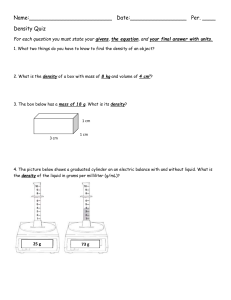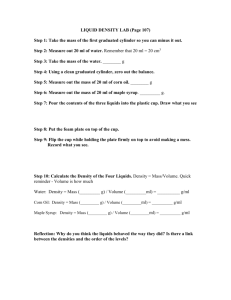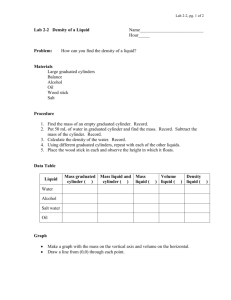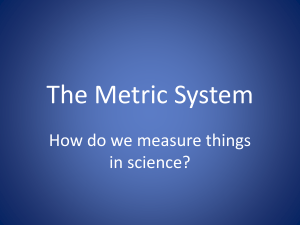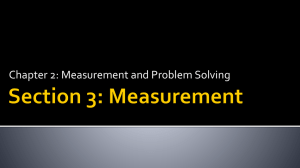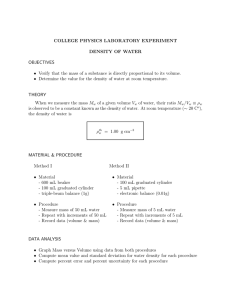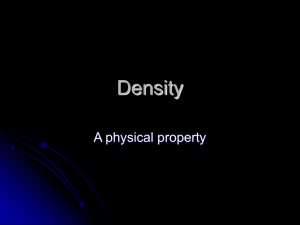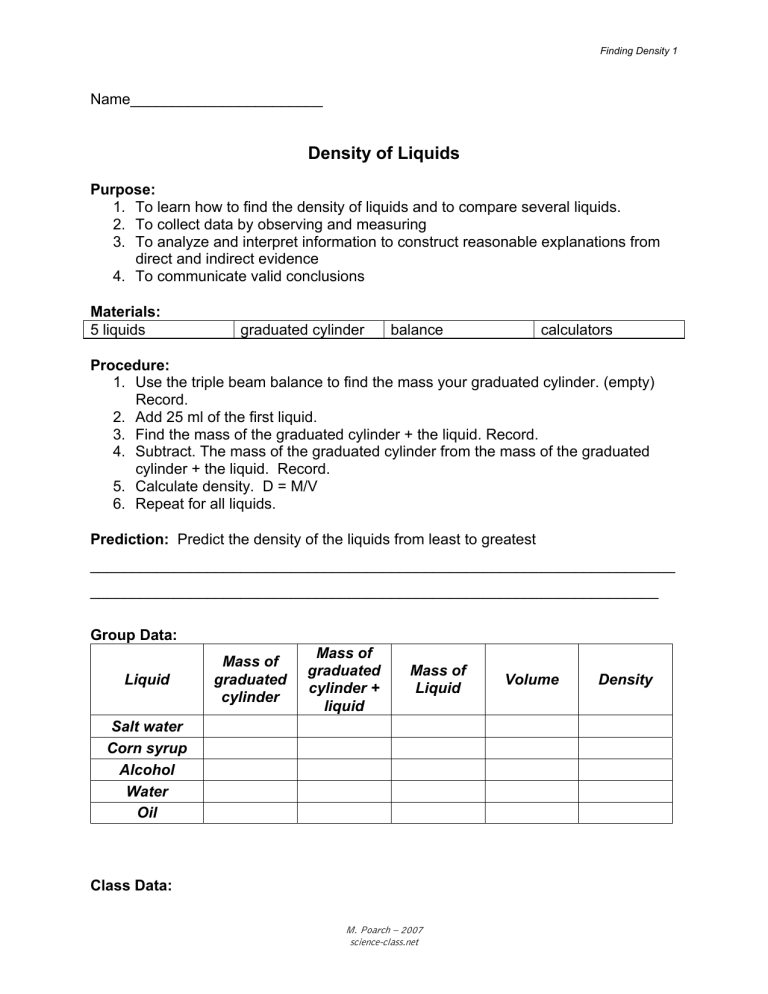
Finding Density 1 Name_______________________ Density of Liquids Purpose: 1. To learn how to find the density of liquids and to compare several liquids. 2. To collect data by observing and measuring 3. To analyze and interpret information to construct reasonable explanations from direct and indirect evidence 4. To communicate valid conclusions Materials: 5 liquids graduated cylinder balance calculators Procedure: 1. Use the triple beam balance to find the mass your graduated cylinder. (empty) Record. 2. Add 25 ml of the first liquid. 3. Find the mass of the graduated cylinder + the liquid. Record. 4. Subtract. The mass of the graduated cylinder from the mass of the graduated cylinder + the liquid. Record. 5. Calculate density. D = M/V 6. Repeat for all liquids. Prediction: Predict the density of the liquids from least to greatest ______________________________________________________________________ ____________________________________________________________________ Group Data: Liquid Mass of graduated cylinder Mass of graduated cylinder + liquid Mass of Liquid Salt water Corn syrup Alcohol Water Oil Class Data: M. Poarch – 2007 science-class.net Volume Density Finding Density 2 Liquid Group 1 Group 2 Group 3 Group 4 Group 5 Group 6 Group 7 Group 8 Average Density Salt water Corn syrup Alcohol Water Oil Data Analysis: Graph your data using bar graph. Remember TAILS & DRY MIX. Why is a bar graph most appropriate? _____________________________________________________________________ Conclusion: M. Poarch – 2007 science-class.net Finding Density 3 1. Why did everyone not get the same densities for the liquids? 2. If you poured all the liquids together in a graduated cylinder what order would they settle in? Draw and label a diagram of the liquids in the cylinder 3. Why do they settle in this order? M. Poarch – 2007 science-class.net
